#Earl of Rochester
Explore tagged Tumblr posts
Text
i lost my computer charger so i cant draw digital shit until a new one can be bought 💢💢
ummm gonna dump notebook things now




ummm uhhh errr we have our glorious queen charles , our two fav partygoers buckingham and rochester, a shrewsbury i did awful perspective on, and one william dollars
#i love how on the buckingham and rochester one u can tell i went over it several times#the fucking line difference#ouugghjjjdjdjjdjs#william doesnt look very william here but im happy with how his face turned out#shrewdbury meowwww ..#ship to history#unanchored art#stuarts and friends#captains guard#duke of shrewsbury#my concubine#william iii#charles ii#charles ii of england#duke of buckingham#earl of rochester#god theres too many buckinghams and rochesters
10 notes
·
View notes
Text
Let me be bold and die for my desire: A phoenix likes to perish in the fire.
— John Wilmot/Earl of Rochester, Selected Works, (2004)
38 notes
·
View notes
Text
i love how rochester shows tf up in tfc and he clearly has a bbl the whole time
10 notes
·
View notes
Text
So anyway I've been reading about Restoration era writers & also learned that in Jane Eyre, Mr. Rochester may have been partly inspired by the Restoration era poet John Wilmot Earl of Rochester, rambunctious sex legend & asshole extraordinaire. I totally support this theory & may include a reference to it in my Jane Eyre fic if I ever update it.
Interesting finds from John Wilmot and Mr. Rochester by Murray G. H. Pittock:
"Mr. Rochester is to an as yet unappreciated degree based upon the character and reputation of his namesake, John Wilmot, the second Earl of Rochester, whose career as it was popularly recorded is the model for the rakehell and penitent phases underlying the development of Mr. Rochester's character." (P 462)
"the Earl's mother 'was a daughter of Sir John St. John, an ancient family of Wiltshire.' The coincidence of the name with that of the alter hero of Jane Eyre is of course striking. This tract also contains an extended passage concerning Wilmot's propensity for disguise, a common feature of the religious Lives." (P 464)
"In both the real man and the fictional character, cynicism and misanthropy turn to faith. As early as Etherege, then, John Wilmot had become a literary archetype, the "devil-angel" of the wicked rake. But he was also, in the alternative tradition of the religious tracts, an archetype of the repentant sinner. Wilmot's pious end made him respectable, and he was in every sense an ideal figure on which to model his fictional namesake." (P 469)
"It is Mr. Rochester who characteristically uses Christian imagery to describe erotic feelings [..]" (P 462)
"Mr. Rochester associates himself with the devil. Quoting from Paradise Lost, he asks Jane 'not to attribute to me any such bad eminence' (p. 166)." (P 463)
i didn't know this but i mention paradise lost in my fic! even tho in her novel shirley, charlotte disses milton's depiction of eve (which i 100% agree with; my last semester i took an english renaissance class wherein i wrote about paradise lost & eve's oppression lol). heathcliff is also miltonian as i acknowledged in a prior post!!!
"Such talk of heaven and hell in the interests of passion are echoes in fact of Mr. Rochester's famous namesake." (P 463)
"The material that Bronte would use in creating the hero of Jane Eyre from his namesake was freely available at the time, and not only through the means of pious hearsay. Burnet's own account is based on interviews with the dying Earl, and because Wilmot's death was finally a pious one, the less risqué of his poems were often found in print. So thoroughly was Wilmot's profligate life associated in the late eighteenth and early nineteenth centuries with his deathbed conversion, that it comes as no surprise to find his poems published in 1821 alongside those of Dr. Spratt, the Bishop of Rochester, in a one-volume collection enticingly titled The Cabinet of Love? Moreover, Burnet's Life was long popular, as its several editions testify, even in the "best" literary circles. Both Horace Walpole and Samuel Johnson wrote critiques which were incorporated into the edition issued in 1820. Such widely disseminated tales of reformed rakes and deathbed conversions were an important part of the literary culture of Brontes youth, reinforced by the Methodism introduced into the family circle by Aunt Branwell. It was not at all unusual, then, that Bronte should turn to John Wilmot in creating her own Mr. Rochester." (P 464)
"Passion untamed by religion until the moment of crisis is a mark of Charlotte Brontes fiction, and to make that mark, who better than a famous rake and a famous convert, John Wilmot, Earl of Rochester?" (P 469)
From John Wilmot, Mr Rochester and William Harrison Ainsworth by Robert Dingley:
"it is also possible that she drew hints from the Earl's depiction in William Harrison Ainsworth's bestselling novel Old St. Paul's (1841), where the Restoration rake displays a chameleon-like facility in disguise and twice attempts to entrap the woman by whom he is obsessed (and who in turn loves him) in spurious wedding ceremonies."
#jane eyre#mr. rochester#paradise lost#excerpts#analysis#my essays#my writing#john wilmot#earl of rochester#history#restoration era#victorian era#victorian literature#literature#english literature#poetry#lit#interesting#charlotte brontë#charlotte bronte#mr rochester#life imitates art#art imitates life#murray g. h. pittock#robert dingley#academia#research#quotes#rakes
24 notes
·
View notes
Text
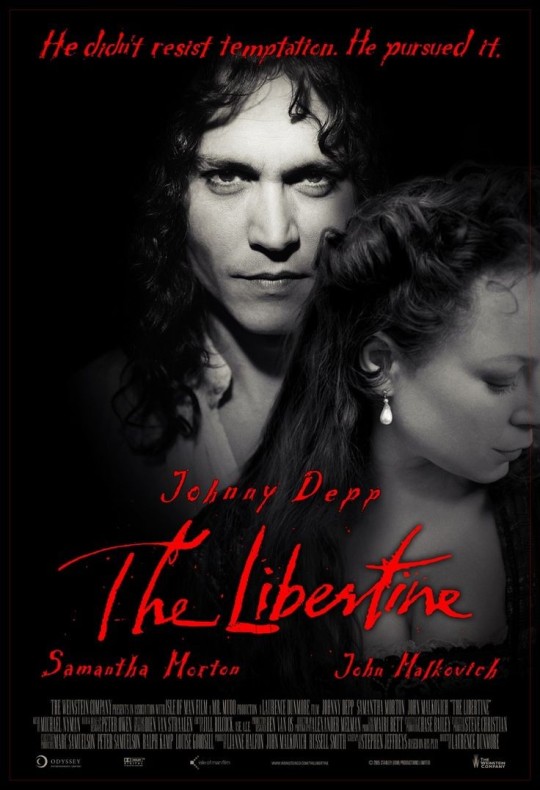
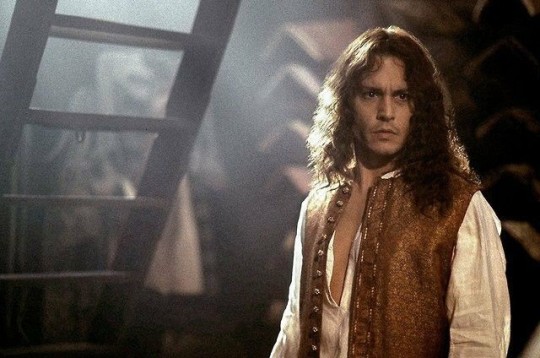


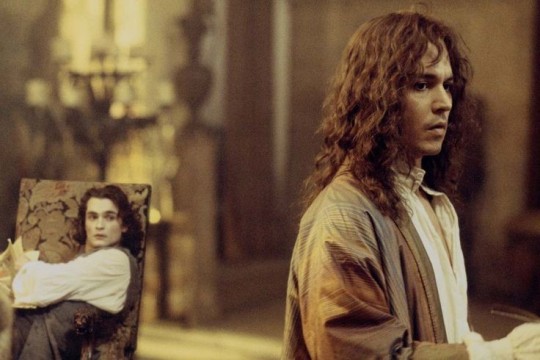

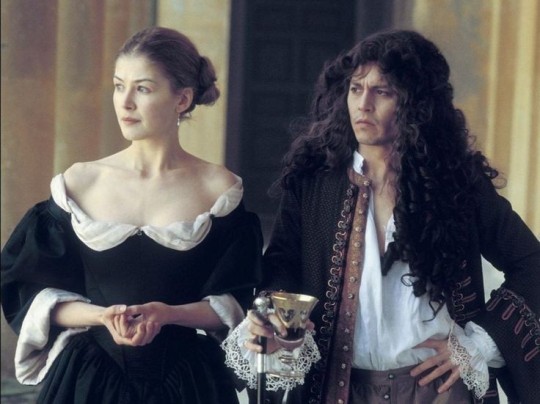

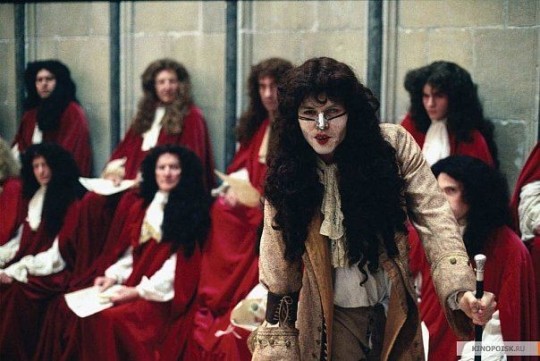

The Libertine (2004)
dir. laurence dunmore
#the libertine#earl of rochester#costume drama#johhny depp#john malkovich#rosamund pike#samantha morton#rupert friend#kelly reilly
15 notes
·
View notes
Text
#Hollywood Vampires #june 12 2023 #june 2023 #Sofia #Bulgaria #cane #The Libertine #Earl of Rochester #John Wilmot #character #scenes
#hollywood vampires#june 12 2023#june 2023#sofia bulgaria#sofia#cane#the libertine#Earl of Rochester#john wilmot#character#scenes
2 notes
·
View notes
Text
1673-1701,Female Wits; Aphra Behn, Judith Drake, Mary Pix, Anne Wharton,
777D Anne Wharton (1632?–1685: ) ; and many more A Collection of Poems: Viz. The Temple of Death: By the Marquis of Normanby. An Epistle to the Earl of Dorset: By Charles Montague, Lord Halifax. The Duel of the Stags: By Sir Robert Howard. With Several Original Poems, Never before Printed, By The E. of Roscommon. The E. of Rochester. The E. Orrery. Sir Charles Sedley. } { Sir George Etherege.…

View On WordPress
0 notes
Text
Last one.
Oh no, I don’t like an improvisation that literally references music in a positive way, as now I feel this has to be beautiful & it will surely sound like a cat on a hook, ALAS! Oh well, here goes. 💀
Also, do I want this music to be innocent or to convey the horrors?! I decided a few seconds on innocent, but let’s entwine The Horrors! (Much like life, eh! Never innocent for long! Here come The Horrors! 😂😩💀) Because despite the description of the music… this improvisation is about the horror of meaninglessness…
(I thought innocence-the horrors-innocence… THE HORRORS!)
"”Play again," I said. "The music is innocent."
Nicolas smiled and nodded. Pamper the madman.
And I knew it wasn't going to pass, and nothing for the moment could make me forget, but what I felt was inexpressible gratitude for the music, that in this horror there could be something as beautiful as that.
You couldn't understand anything; and you couldn't change anything. But you could make music like that. And I felt the same gratitude when I saw the village children dancing, when I saw their arms raised and their knees bent, and their bodies turning to the rhythm of the songs they sang. I started to cry watching them.
I wandered into the church and on my knees I leaned against the wall and I looked at the ancient statues and I felt the same gratitude looking at the finely carved fingers and the noses and the ears and the expressions on their faces and the deep folds in their garments, and I couldn't stop myself from crying.
At least we had these beautiful things, I said. Such goodness.
But nothing natural seemed beautiful to me now! The very sight of a great tree standing alone in a field could make me tremble and cry out. Fill the orchard with music.
And let me tell you a little secret. It never did pass, really.
What caused it? Was it the late night drinking and talking, or did it have to do with my mother and her saying she was going to die? Did the wolves have something to do with it? Was it a spell cast upon the imagination by the witches' place?
I don't know. It had come like something visited upon me from outside. One minute it was an idea, and the next it was real. I think you can invite that sort of thing, but you can't make it come.
Of course it was to slacken. But the sky was never quite the same shade of blue again. I mean the world looked different forever after, and even in moments of exquisite happiness there was the darkness lurking, the sense of our frailty and our hopelessness.
Maybe it was a presentiment. But I don't think so. It was more important than that, and frankly I don't believe in presentiments.”
Interesting though.. a presentiment regarding how Lestat will be pulled from all that is natural: The Earth & the seas & the grass & the sky & humanity… and into monstrousness. But perhaps, Mon Cher, you can still find beauty & goodness & meaning in art? Or even, dare I suggest, within your immortal soul? Your body is no longer human, no. But your soul is the same as it ever was & ever shall be. And maybe there’s some metaphor in here about how we mostly struggle to imagine anything other than that some essence of our selves is eternal?
Truth, though? Dead, we become the lumber of the world, eh?
“After Death nothing is, and nothing, death,
The utmost limit of a gasp of breath.
Let the ambitious zealot lay aside
His hopes of heaven, whose faith is but his pride;
Let slavish souls lay by their fear
Nor be concerned which way nor where
After this life they shall be hurled.
Dead, we become the lumber of the world,
And to that mass of matter shall be swept
Where things destroyed with things unborn are kept.
Devouring time swallows us whole.
Impartial death confounds body and soul.
For Hell and the foul fiend that rules
God's everlasting fiery jails
(Devised by rogues, dreaded by fools),
With his grim, grisly dog that keeps the door,
Are senseless stories, idle tales,
Dreams, whimsey's, and no more.”
Lestat’s existential crisis though… while I agree (as if it were about that) & feel the content of it, I feel almost opposite about it to him. I’ve heard people say that to look at the stars terrifies them as it makes them feel small & insignificant & meaningless… and for Lestat, he is horrified by the concept of life being utterly meaningless. Not just his own, but every life. But for me? I find that truth (which I agree with) comforting. We’re all but specks of dust & so our greatest joy; our greatest sorrow; our wonder; our horror; our suffering; our significance or lack thereof in any way matters not. Everything will tend through Lestat’s chaos & will eventually end in total nothingness. Even the music of Mozart, the history of all humanity will one day be lost to the vast chasm of nothingness as if it never existed.
Have a lovely day folks, contemplating non-existence!
But y’know… now I know my own feelings on such matters I ache because I want Nicolas & Lestat to discuss how there can exist a comfort in non-existence… because when life is all there is, all there is to do is to live it to the fullest you can. And Lestat knows all about that. And Nicolas - if only you could believe that, maybe you could have found some reason to exist too? I see why Nicolas doesn’t have it in him to comfort Lestat this way though as in this, Nicolas is even farther from myself - the chaos destroys him.
Rereading TVL I notice how often Lestat himself speaks of The Chaos.
xxxxx
#violin improvisation#five stringed violin#violinist#violin#interview with the vampire#anne rice#amc interview with the vampire#lestat de lioncourt#the vampire lestat#amc iwtv#iwtv amc#iwtv lestat#malady of mortality#nicolas de lenfent#nickistat#john wilmot#Earl of Rochester#seneca#a fragment of Seneca translated
1 note
·
View note
Text
A Song (Absent From Thee)
- John Wilmot(1647-1680)
Absent from thee i languish still,
Then ask me not, when I return?
The straying Fool ‘twill plainly kill,
To wish all Day, all Night to Mourn.
•
Dear, from thine Arms then let me flie,
That my Fantastick mind may prove,
The Torments it deserves to try,
That tears my fist Heart from my Love.
•
When wearied with a world of Woe,
To thy safe Bosom I retire
Where Love and Peace and Truth does flow,
May I contented there expire.
•
Lest once more wandring from that Heav’n
I fall on some base heart unblest;
Faithless to thee, False, unforgiv’n,
And lose my Everlasting rest.
1 note
·
View note
Text
Unironically this is a bit what my final paper was about, arguing that a Level 4 was actually a Level 3. (Almost) All the primary sources about the issue referenced a super unreliable primary source and was just presumed to be telling the truth. If it wasn't for the diary of the guy's daughter talking about a letter written to her by the guy's butler, which was extremely at odds with the above primary source, we'd just have to take the one primary source as the only source of info and call it historical record.
This is just to say that sometimes they're not all liars. Sometimes there's one really good liar that all the others were fooled by. Sometimes you have to sound a bit like a raving lunatic to prove your point
Level 1: There are no surviving records of what this was about.
Level 2: There are some surviving records of what this was about, but they're from centuries after the fact and may be speculative or fabricated.
Level 3: We have writings from a contemporary primary source regarding what this was about, but it's often unclear whether the writer is speaking from first-hand experience, and also they're known to have sometimes just made shit up.
Level 4: We have writings from multiple contemporary primary sources which broadly corroborate each other regarding what this was about, but – and hear me out – what if they're all lying.
#mostly personal#I'm talking about John Wilmot#Earl of Rochester#Who was done dirty by posthumous commentators#the church#and historians who took all those accounts as true
4K notes
·
View notes
Text
Her eyes that feed my love.
— John Wilmot/Earl of Rochester, Selected Works, (2004)
41 notes
·
View notes
Text
reading rochester's poetry and nodding my head the entire time so everyone knows i agree with this filth
6 notes
·
View notes
Text
The Stuarts and Friends: Valentine's Day 💌💘
*Have a lovely proper romantic day out to celebrate*: Charles I, Henrietta Maria, Charles II, Catherine of Braganza, William III, Mary II, Hans William Bentinck, Anne Queen of Great Britain, George of Denmark Sarah Churchill, John Churchill
*Give their partner flowers and chocolate*: Charles I, Henrietta Maria, Charles II, Catherine of Braganza, James Duke of Monmouth, Hans William Bentinck, Arnold Joost van Keppel, Anne Queen of Great Britain, George of Denmark, Sarah Churchill, John Churchill
*Give their partner (mostly) suggestive poetry*: John Wilmot Earl of Rochester
*Are single because they prefer to celebrate Galentine's Day instead*: Mary Queen of Scots, James VI and I Anne of Denmark, Anne Hyde and Mary of Modena too probably.
Are single and enjoying it: James VI and I
Are single and NOT enjoying it: James II is desperate for a new girlfriend probably.
*VERY AGGRESSIVE SEX*: James II
#the stuarts and friends#mary queen of scots#james vi and i#anne of denmark#charles i#henrietta maria#henrietta maria of france#charles ii#catherine of braganza#james scott duke of monmouth#james ii#anne hyde#maria beatrice d'este#mary of modena#william iii#william of orange#mary ii#hans william bentinck#arnold joost van keppel#anne queen of great britain#george of denmark#prince george of denmark#sarah churchill#john churchill#john wilmot earl of rochester#stuarts#stuartposting#we have a pretty witty queue#history humour#stuart memes
6 notes
·
View notes
Text
Rochester: And here is a poem about how you are all trash and how I cannot stand you deal with it guys.
Charles: OMG HAHAHA CLASSIC JOHNNY NEVER STOP. 🤣😂
6 notes
·
View notes
Text

John Wilmot, Earl of Rochester, ‘A Satyr Against Reason and Mankind’.
#john wilmot#earl of rochester#satyr against reason and mankind#quote#augustan poetry#restoration poetry#17th century poetry#libertine poets#poetry#p
2 notes
·
View notes